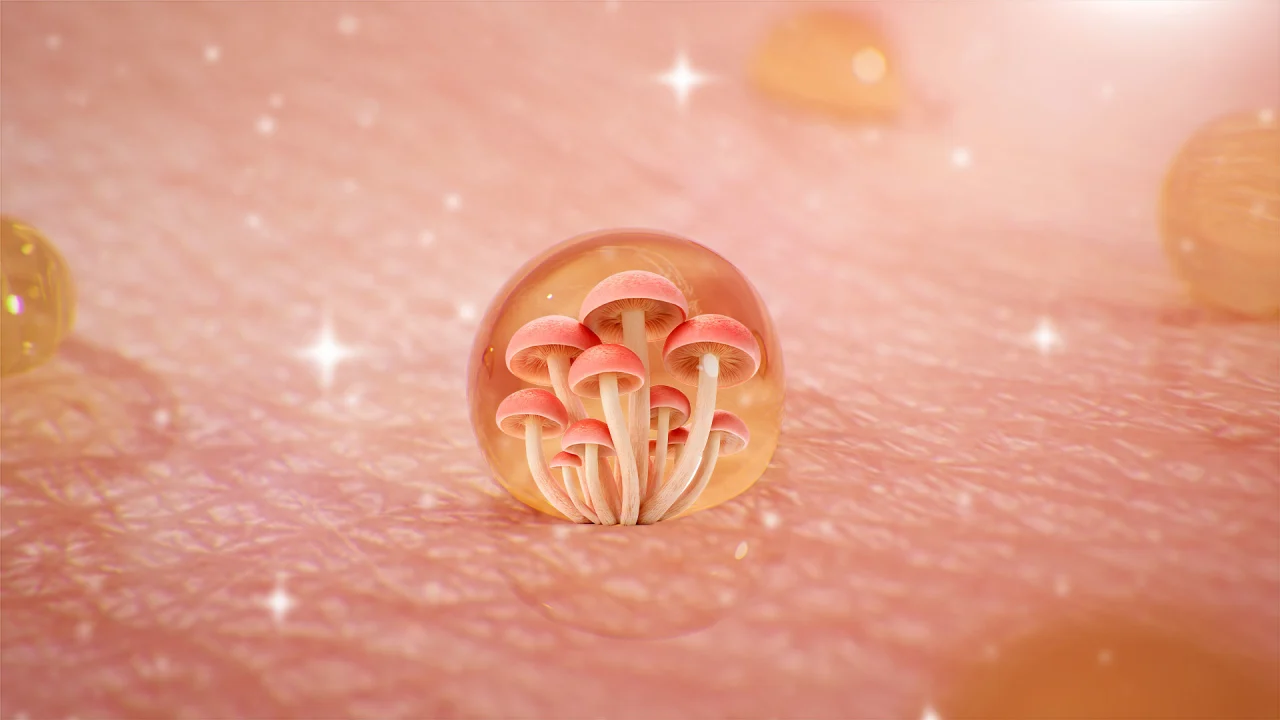Forget Botox! Scientists say tripping on mushrooms might keep you young

Tech execs love popping supplements and infusing themselves with youthful young plasma to ward off Father Time. New research, however, shows that a substance that humans have been ingesting for a thousand years holds powerful antiaging effects.
A new study published in Nature Partner Journals’ Aging discovered that naturally occurring compounds in the modest psychedelic mushroom were able to slow aging in cells and even increase a mouse’s lifespan. The two-pronged study out of Emory University examined the effects of psilocybin, the psychoactive ingredient in magic mushrooms, on the micro level by using human lung and skin cells, and on the macro level with lab mice.
Human fetal lung cells treated with psilocin, psilocybin’s active metabolite, showed a 29% boost to their cellular lifespans—a number that rocketed to 57% when exposed to a much larger dosage. When the scientists repeated the study with human skin cells, the large psilocin dose increased the cells’ lifespan by 51%. Across the cellular experiments, exposure to the psychedelic reduced the oxidative stress that can lead to cell damage and preserved the length of telomeres, a part of the chromosome implicated in cancer and other age-related diseases.
The scientists’ findings in living mice were even more impressive. When dosing older mice with psilocybin and comparing them to a control group, the research team found that the aged mice lived 30% longer than their peers who weren’t subject to the same psychedelic journey. On top of that, the mice given psilocybin looked healthier, with better fur quality, more hair regrowth, and less graying on their coats.
Psilocybin is an emerging frontier in mental health research, but it holds some strong potential in the field of longevity, too. The psychedelic substance has shown promise for everything from helping smokers and alcoholics quit their habits to giving patients long-lasting relief from major depression.
“Our study opens new questions about what long-term treatments can do,” senior study author and former Emory University associate professor Louise Hecker, PhD, said. “Additionally, even when the intervention is initiated late in life in mice, it still leads to improved survival, which is clinically relevant in healthy aging.”
What's Your Reaction?
 Like
0
Like
0
 Dislike
0
Dislike
0
 Love
0
Love
0
 Funny
0
Funny
0
 Angry
0
Angry
0
 Sad
0
Sad
0
 Wow
0
Wow
0






























































































